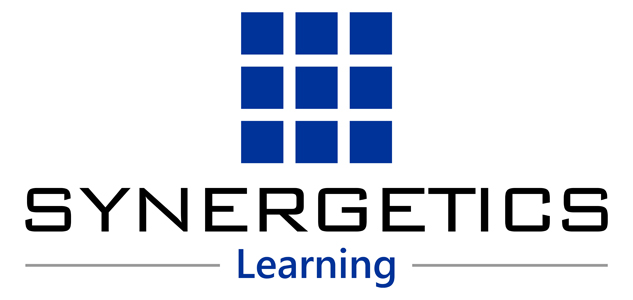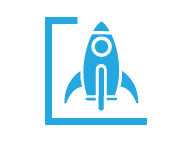|
Highlights
Module 1:
Data Platform Architecture Considerations
In this
module, the students will learn how to design and
build secure, scalable and performant solutions in
Azure by examining the core principles found in
every good architecture. They will learn how using
key principles throughout your architecture
regardless of technology choice, can help you
design, build, and continuously improve your
architecture for an organizations benefit.
Lessons
-
Core
Principles of Creating Architectures
-
Design
with Security in Mind
-
Performance and Scalability
-
Design for
availability and recoverability
-
Design for
efficiency and operations
-
Case Study
Lab : Case
Study
-
Design
with security in mind
-
Consider
performance and scalability
-
Design for
availability and recoverability
-
Design for
efficiency and operations
After
completing this module, students will be able to:
-
Design
with Security in mind
-
Consider
performance and scalability
-
Design for
availability and recoverability
-
Design for
efficiency and operations
Module 2:
Azure Batch Processing Reference Architectures
In this
module, the student will learn the reference design
and architecture patterns for dealing with the batch
processing of data. The student will be exposed to
dealing with the movement of data from on-premises
systems into a cloud data warehouse and how it can
be automated. The student will also be exposed to an
AI architecture and how the data platform can
integrate with an AI solution.
Lessons
-
Lambda
architectures from a Batch Mode Perspective
-
Design an
Enterprise BI solution in Azure
-
Automate
enterprise BI solutions in Azure
-
Architect
an Enterprise-grade Conversational Bot in Azure
Lab :
Architect an Enterprise-grade Conversational Bot in
Azure
-
Designing
an Enterprise BI solution in Azure
-
Automate
an Enterprise BI solution in Azure
-
Automate
an Enterprise BI solution in Azure
After
completing this module, students will be able to:
-
Core
Principles of Creating Architectures
-
Describe
Lambda architectures from a Batch Mode
Perspective
-
Design an
Enterprise BI solution in Azure
-
Automate
enterprise BI solutions in Azure
-
Architect
an Enterprise-grade conversational bot in Azure
-
Case study
Module 3:
Azure Real-Time Reference Architectures
In this
module, the student will learn the reference design
and architecture patterns for dealing with streaming
data. They will learn how streaming data can be
ingested by Event Hubs and Stream Analytics to
deliver real-time analysis of data. They will also
explore a data science architecture the streams data
into Azure Databricks to perform trend analysis.
They will finally learn how an Internet of Things (IoT)
architecture will require data platform technologies
to store data.
Lessons
-
Lambda
architectures for a Real-Time Perspective
-
Architect
a stream processing pipeline with Azure Stream
Analytics
-
Design a
stream processing pipeline with Azure Databricks
-
Create an
Azure IoT reference architecture
Lab : Azure
Real-Time Reference Architectures
-
Architect
a stream processing pipeline with Azure Stream
Analytics
-
Design a
stream processing pipeline with Azure Databricks
-
Create an
Azure IoT reference architecture
After
completing this module, students will be able to:
-
Lambda
architectures for a Real-Time Mode Perspective
-
Architect
a stream processing pipeline with Azure Stream
Analytics
-
Design a
stream processing pipeline with Azure Databricks
-
Create an
Azure IoT reference architecture
Module 4: Data
Platform Security Design Considerations
In this
module, the student will learn how to incorporate
security into an architecture design and learn the
key decision points in Azure provides to help you
create a secure environment through all the layers
of your architecture.
Lessons
Lab : Data
Platform Security Design Considerations
After
completing this module, students will be able to:
Module 5:
Designing for Resiliency and Scale
In this
module, student will learn scaling services to
handle load. They will learn how identifying network
bottlenecks and optimizing your storage performance
are important to ensure your users have the best
experience. They will also learn how to handle
infrastructure and service failure, recover from the
loss of data, and recover from a disaster by
designing availability and recoverability into your
architecture.
Lessons
-
Adjust
Workload Capacity by Scaling
-
Optimize
Network Performance
-
Design for
Optimized Storage and Database Performance
-
Identifying Performance Bottlenecks
-
Design a
Highly Available Solution
-
Incorporate Disaster Recovery into Architectures
-
Design
Backup and Restore strategies
Lab :
Designing for Resiliency and Scale
-
Adjust
Workload Capacity by Scaling
-
Design for
Optimized Storage and Database Performance
-
Design a
Highly Available Solution
-
Incorporate Disaster Recovery into Architectures
After
completing this module, students will be able to:
-
Adjust
Workload Capacity by Scaling
-
Optimize
Network Performance
-
Design for
Optimized Storage and Database Performance
-
Identifying Performance Bottlenecks
-
Design a
Highly Available Solution
-
Incorporate Disaster Recovery into Architectures
-
Design
Backup and Restore strategies
Module 6:
Design for Efficiency and Operations
In this
module, students will learn how to design an Azure
architecture that is operationally-efficient and
minimizes costs by reducing spend, they will
understand how to design architectures that
eliminates waste and gives them full visibility into
what is being utilized in your organizations Azure
environment.
Lessons
-
Maximizing
the Efficiency of your Cloud Environment
-
Use
Monitoring and Analytics to Gain Operational
Insights
-
Use
Automation to Reduce Effort and Error
Lab : Design
for Efficiency and Operations
-
Maximize
the Efficiency of your Cloud Environment
-
Use
Monitoring and Analytics to Gain Operational
Insights
-
Use
Automation to Reduce Effort and Error
After
completing this module, students will be able to:
-
Maximize
the Efficiency of your Cloud Environment
-
Use
Monitoring and Analytics to Gain Operational
Insights
-
Use
Automation to Reduce Effort and Error
|



